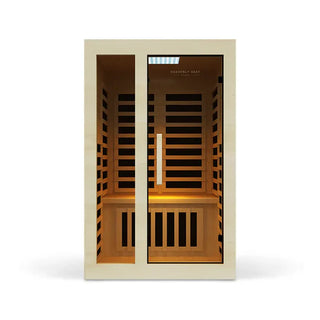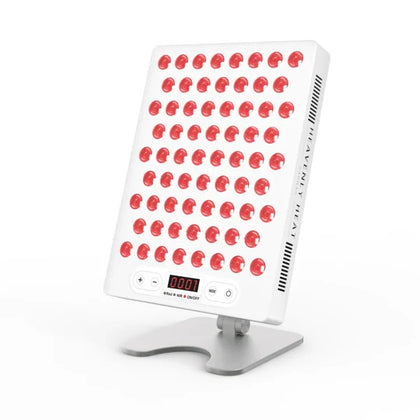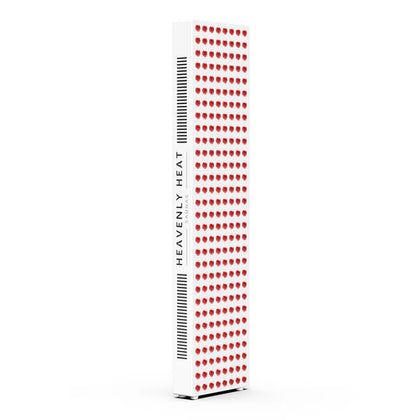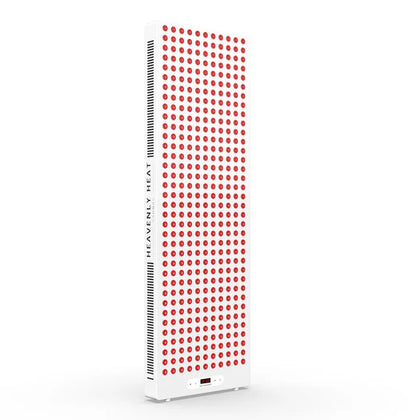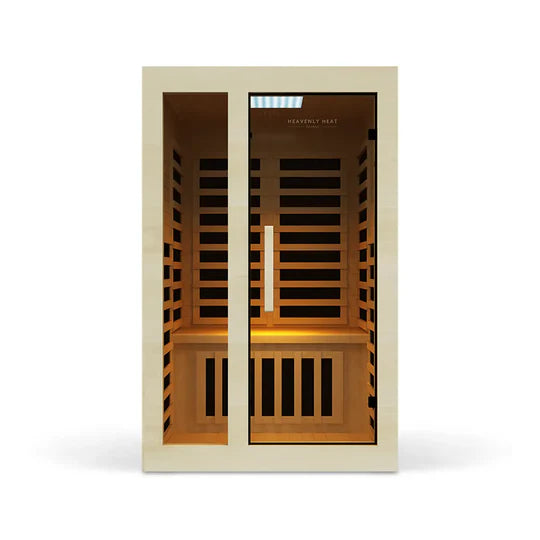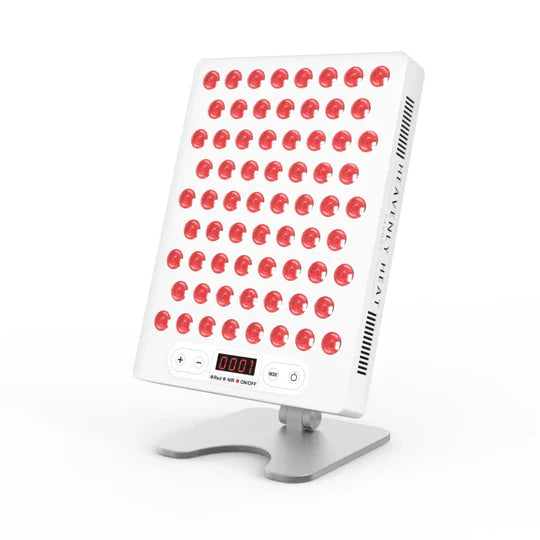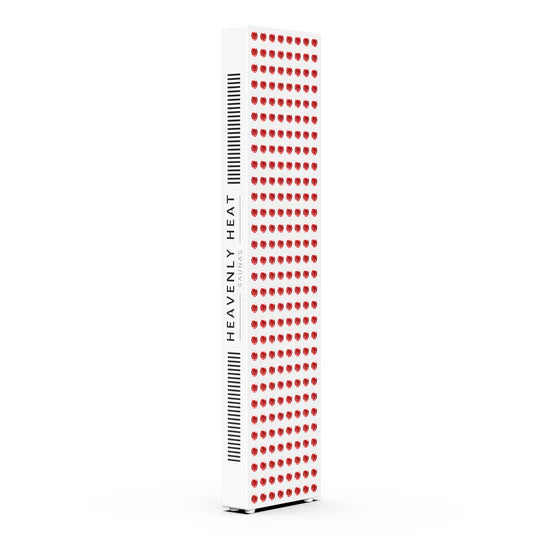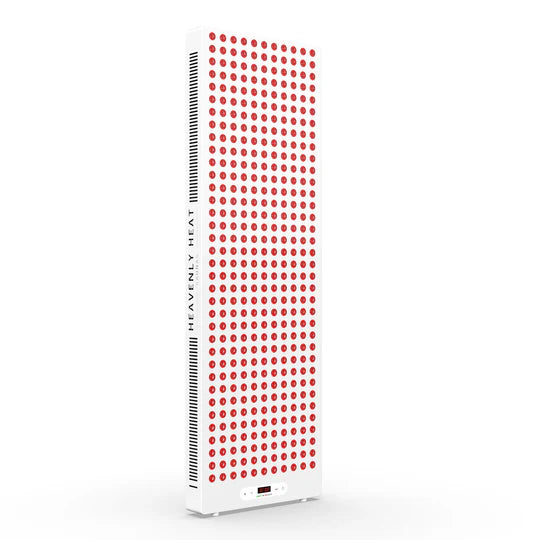Best Time to Use a Sauna: When to Use a Sauna and Ideal Sauna Time

Sweating it out in a sauna feels amazing, but did you know it can also reduce stress, improve heart health, relieve pain, and even boost your immune system?
The problem is that using a sauna at the wrong time might not give you the full benefits or worse, leave you feeling dizzy or dehydrated. Do not waste your session. Learn the best time to sauna!
Key takeaways
-
Time Your Sauna Right: Morning sessions boost energy, while evening saunas aid relaxation and sleep.
-
Sauna and Workouts: Use a sauna after exercise for muscle recovery; pre-workout sessions should be brief.
-
Stay Hydrated: Drink water before and after to prevent dehydration; avoid alcohol and caffeine.
-
Listen to Your Body: Avoid saunas if you're sick, pregnant, dehydrated, or have certain health conditions.
- Enhance Your Routine: Combine sauna sessions with breathwork, stretching, or cold therapy for added benefits.
Why Sauna Timing Matters for Maximizing Benefits
- Using the sauna in the morning helps increase your energy and blood flow: A morning sauna session can boost your energy and improve circulation, preparing you for the day ahead.
- Taking a sauna in the evening helps your body relax and sleep better: An evening sauna calms your muscles and supports restful sleep, making it great for winding down.
- Using the sauna right after exercise helps your muscles recover faster: “ After working out, a sauna increases blood flow to muscles, speeding up recovery and reducing soreness," says Dr. Christopher Minson , a human physiology professor, researcher, and innovator.
- Using the sauna before exercise can warm your muscles but too much heat can lower performance: A sauna before a workout may warm your muscles, but spending too long in the heat might reduce how well you perform.
- People with heart or blood pressure issues should talk to a doctor before using a sauna: Dr. Andrew Weil , If you have heart or blood pressure problems, check with your doctor before using a sauna to stay safe.
- Avoid using the sauna right after eating or if you are dehydrated to feel comfortable: To prevent feeling unwell, don’t use the sauna immediately after meals or when you’re dehydrated. Timing is key to getting the best results.
Morning vs. Evening Sauna: Which Is Better?
- Starting your day with a sauna helps you feel more active: Morning sauna sessions wake up your body by improving blood flow and boosting alertness, making it easier to tackle the day with energy.
- Ending your day with a sauna helps you relax and sleep well: Using the sauna in the evening calms the body and mind, helping you unwind and fall asleep more easily.
- The right time depends on what you want to achieve: Morning saunas are better if you want to burn more calories or boost metabolism. Evening saunas are ideal for muscle recovery and stress relief.
- Too much heat or time inside can harm your body: Dr. Mehmet Oz warns that staying too long or using very high heat can lower your blood pressure or make you feel dizzy and dehydrated.
- Safe temperatures and time limits keep your sauna healthy: Stick to 140°F for saunas and 100°F for hot tubs. Always leave before feeling lightheaded to get the benefits without the risks.
Sauna Before or After a Workout?
- Warming up in the sauna before working out helps loosen your body: Using the sauna before exercise warms up your muscles and improves flexibility. It's especially helpful if you're about to stretch or do something light.
- Sitting in the sauna after your workout helps your body recover faster: After exercise, a sauna session boosts blood flow, reduces soreness, and helps your muscles relax so you can feel better sooner.
- Heat during training might feel tough but helps build mental and physical strength: Dwayne Johnson compared a hot gym to a sauna, but that kind of heat can actually help you push yourself harder and keep making progress.
- Using the sauna regularly can also be good for your brain and long-term health: Dr. David Burke recommends sauna sessions a few times a week to support brain health and body recovery, even if you haven’t had an injury.
- You lose water in the sauna, so staying hydrated is very important: Whether you use the sauna before or after working out, sweating leads to water loss. Drinking enough water is key to staying safe and feeling good.
Sauna Timing for Weight Loss
- Starting your day with sauna can help burn more fat: Using a sauna in the morning helps kick your metabolism into gear, making it easier for your body to start burning fat earlier in the day.
- A sauna at night can help you sleep better and lose weight: Evening sauna sessions relax your body, ease muscle tension, and improve your sleep, all of which support better weight control.
- Using the sauna after a workout helps with fat burning and recovery: Hitting the sauna after exercise keeps your metabolism active longer and helps your body recover faster, which is useful for weight loss," says Wan Na Chun, MPH RD CPT , a public health dietitian, trainer, and blogger.
- Staying inside for 15 to 20 minutes gives the best results: You don’t need long sessions, just 15 to 20 minutes is enough to get the benefits without overdoing it.
- Doing sauna regularly gives better weight loss results: To really see a difference, try to use the sauna 3 to 5 times a week as part of your routine.
Fitting Sauna Into Your Daily Schedule
- Starting your morning with a sauna can help you feel more awake: Using the sauna early in the day boosts blood flow and gives you a natural energy lift, which makes it easier to start your day strong.
- A short sauna during lunch can clear your mind and improve focus: If you're busy, even a quick midday session helps you feel refreshed, reducing stress and sharpening your attention for the rest of the day.
- Doing sauna after your workout helps your muscles recover faster: After exercise, a sauna session can ease soreness and help your body bounce back quicker so you're ready for the next activity.
- Using the sauna at night helps your body and mind relax before bed: If your main goal is to relax, ending the day with a sauna session helps you unwind and sleep better.
- Sauna twice a day can give a big health boost: Dr. Mark Hyman says two 15-minute dry sauna sessions daily can raise growth hormone by 500%, which supports muscle growth, fat burning, and overall wellness.
- The best sauna schedule is the one that fits your daily life: There’s no one perfect time, what matters most is choosing a routine that matches your lifestyle and health goals without adding stress.
How Often Should You Use a Sauna?
- Everyone’s body needs a different sauna routine: How often you should use a sauna depends on your body, lifestyle, and goals. There’s no fixed number that works for everyone.
- Most people feel good using it 3 to 4 times a week: Most people benefit from three to four sauna sessions per week. This keeps the body refreshed without overdoing it.
- Using a sauna every day is fine if you do it right: Daily sauna use is generally safe, as long as you drink enough water and pay attention to how your body responds.
- Doing it too much can make you feel weak or dizzy: If you overuse the sauna, you might feel tired, dizzy, or dehydrated. It’s important not to push your limits.
- Starting slow helps your body get used to the heat: If you’re new to saunas, begin with two or three sessions a week. This helps your body adjust without stress.
- Older people should be extra careful with sauna use: Older adults, especially those with health issues, might want to sauna less often. It’s safer to go slowly and see how it feels.
- The best routine is the one your body is okay with: No matter your age or experience, listen to your body. Adjust your sauna routine based on how you feel each day.
Sauna and Nutrition: Eating Before or After a Session
Using a sauna before exercise can warm up muscles and improve flexibility, making it ideal before stretching or light activity.
However, a post-workout sauna is generally more beneficial for muscle recovery, reducing soreness, and promoting relaxation.
Hydration is key, as sweating can lead to dehydration, whether before or after a workout.
Hydration and Sauna: When to Drink Water
- You Need to Drink Water to Stay Hydrated in Sauna: Mayo Clinic recommends, To avoid dehydration, drink plenty of fluids and eat water-rich foods like fruits and vegetables before and during sauna use.
- Sweating Makes You Lose Water, So Keep Drinking: Sauna sweating helps clean your body but also makes you lose a lot of water, increasing the need to drink more.
- Drink Water Before and After Sauna to Feel Good: Drinking water before and after your sauna helps you stay refreshed and stops dizziness.
- Stop Sauna If You Feel Lightheaded and Drink Water: If you feel dizzy or lightheaded, leave the sauna right away and drink water to rehydrate.
- Avoid Alcohol and Caffeine Because They Dry You Out: Alcohol and caffeine make dehydration worse, so don’t drink them before or after your sauna session.
- Staying Hydrated Helps Your Body Handle Sauna Heat: When your body has enough water, it can handle the heat better and you get more benefits from your sauna time.
Seasonal Considerations: Sauna in Summer vs. Winter
- Sauna use is different in summer and winter: The benefits of using a sauna change depending on the season, with each offering unique effects for your body.
- Sauna warms your body and lifts your mood in winter: In cold weather, sitting in a sauna helps you feel warm, improves blood flow, and can reduce feelings of winter sadness.
- Staying hydrated is important in winter saunas: Because the air inside is dry, you can get dehydrated fast, especially if you stay longer in the sauna during winter.
- Sauna helps your body get used to heat in summer: Even in hot weather, using a sauna can train your body to handle heat better, making hot days feel less uncomfortable.
- Keep sauna sessions short in summer to stay safe: Since you’re already hot during summer, shorter sauna times prevent overheating and keep you comfortable.
When to Avoid Using a Sauna
Certain Health Conditions
- Certain health conditions mean you should avoid the sauna: People with high blood pressure, heart disease, or who are pregnant should not use a sauna because it can be risky for their health.
- Alcohol and some medicines make sauna use unsafe: Using a sauna after drinking alcohol or taking medicines that affect how your body handles heat can be dangerous.
- Leave the sauna right away if you feel dizzy or uncomfortable: If you feel dizzy, lightheaded, or unwell while in the sauna, it’s important to get out immediately to stay safe.
- Sauna can help some heart patients when used carefully: Although sauna use was once thought unsafe for people with chronic heart failure, new research shows it can improve heart health if done the right way.
- Sauna use improved heart function over a few weeks: Patients with heart problems who used saunas correctly for four weeks showed better heart efficiency and less strain, showing the benefits when done safely.
Pregnancy
- Pregnant women can overheat and feel dizzy in saunas: Using a sauna while pregnant can cause your body to get too hot, which might make you feel dizzy or dehydrated. Doctors advise against it for safety.
- Heat from saunas may increase birth defect risks early in pregnancy: Spending a long time in saunas or hot tubs during early pregnancy might raise the chances of birth defects according to some studies .
- Saunas raise body temperature, which can harm the baby: When you use a sauna, your core body temperature goes up, and this can be dangerous for your developing baby.
- Too much heat in early pregnancy can lead to miscarriage: In the first three months, the baby is very sensitive to heat, and high temperatures may increase the risk of miscarriage.
High Blood Pressure
If you have high blood pressure, saunas can be risky. The heat causes blood vessels to expand, which can lead to a sudden drop in pressure when standing up.
This can cause dizziness or fainting. If you take medication for hypertension, be cautious, some drugs lower blood pressure, and combined with the sauna’s effects, this can lead to dangerous drops.
Dehydration Risk
Saunas make you sweat, which helps eliminate toxins but also increases the risk of dehydration.
Early signs include dizziness, dry mouth, and fatigue. Those most at risk include older adults, children, and people taking diuretics.
Mixing Alcohol with Saunas
- Drinking Alcohol Makes Sauna Use Risky: Drinking alcohol before using a sauna is dangerous. Alcohol dehydrates the body, and when combined with sauna heat, this can lead to dizziness, fainting, or even heat stroke.
- Alcohol and Sauna Heat Lower Blood Pressure Together: The heat from the sauna dilates blood vessels, and when mixed with alcohol’s effects, this can cause sudden drops in blood pressure.
- Alcohol Is Involved in Many Sauna-Related Deaths: According to a study , Deaths in saunas are rare, but alcohol plays a major role in the cases that do happen. Nearly half of sauna deaths involved alcohol.
- Avoid Alcohol Before and During Sauna for Safety: To stay safe, don’t drink before or during a sauna session and never leave someone drunk alone in the heat.
Sick
Saunas are often thought to help with colds, but they can actually make symptoms worse.
If you have a fever, using a sauna can raise your body temperature too much, making you feel worse.
People with asthma or other breathing conditions should be cautious in a sauna. The heat and humidity can either soothe airways or trigger breathing difficulties.
If you start feeling lightheaded or have difficulty breathing in a sauna, leave immediately.
Breathing Problems
- Sauna heat can help or hurt asthma symptoms: Some people with asthma feel better in a sauna, but others may have trouble breathing.
- Strong heat can make lung problems worse: People with lung diseases might find the hot sauna air hard to handle.
- Sauna heat may worsen sleep apnea breathing: If you have sleep apnea, the sauna could make your breathing problems worse.
- Leave the sauna if you feel dizzy or can’t breathe: If you feel lightheaded or have trouble breathing, get out of the sauna right away.
- Always check with a doctor and listen to your body: If you have breathing issues, talk to your doctor before using a sauna and pay attention to how you feel.
Heat Sensitivity
Individuals with heat sensitivity should limit their time in the sauna and monitor how their body reacts.
Overheating can cause dizziness and fatigue, so it’s important to listen to your body and take breaks as needed.
Medication Warnings
Certain medications can make sauna use dangerous. Diuretics increase fluid loss, raising the risk of dehydration.
Blood pressure medications may interact with sauna heat, leading to sudden drops in pressure. If you take medication regularly, check with your doctor before using a sauna.
Sauna and Other Wellness Routines
Cold Therapy & Showers – Benefits of hot & cold contrast
Alternating between hot and cold therapy can improve circulation, reduce muscle soreness, and boost recovery.
A cold shower or ice bath after a sauna session can invigorate the body and enhance the benefits of heat exposure.
Breathwork Basics – Deep breathing for relaxation & focus
Breathwork is a powerful tool that enhances both relaxation and focus. By practicing controlled breathing, you signal your body to shift into a calmer state, reducing stress and improving mental clarity.
Mindful Moments – Meditation & self-reflection tips
A sauna is a great place for meditation and self-reflection. The quiet, warm environment allows for deep breathing and relaxation, helping to reduce stress and improve mental clarity.
Stretch & Flow – Yoga & flexibility routines
The sauna’s heat helps loosen muscles, making it a good time for gentle stretching or yoga poses. This can improve flexibility and aid in post-workout recovery.
Aromatherapy in Sauna – Essential oils & infusions
Using essential oils like eucalyptus or lavender in a sauna enhances relaxation and provides respiratory benefits.
Dry Brushing Detox – Boost circulation & skin health
Before stepping into a sauna, dry brushing can give your body an extra boost. The firm, gentle strokes wake up your skin by increasing blood flow and helping your body flush out toxins.
How Late Is Too Late to Use a Sauna?
Using a sauna too late at night can mess with your sleep. If you use it too close to bedtime, especially after 10 PM, the heat can raise your body temperature and make it harder to fall asleep.
Some people find that late-night sauna use disrupts deep sleep and REM sleep. To avoid these issues, it’s best to stop at least an hour before bed, giving your body enough time to cool down.




